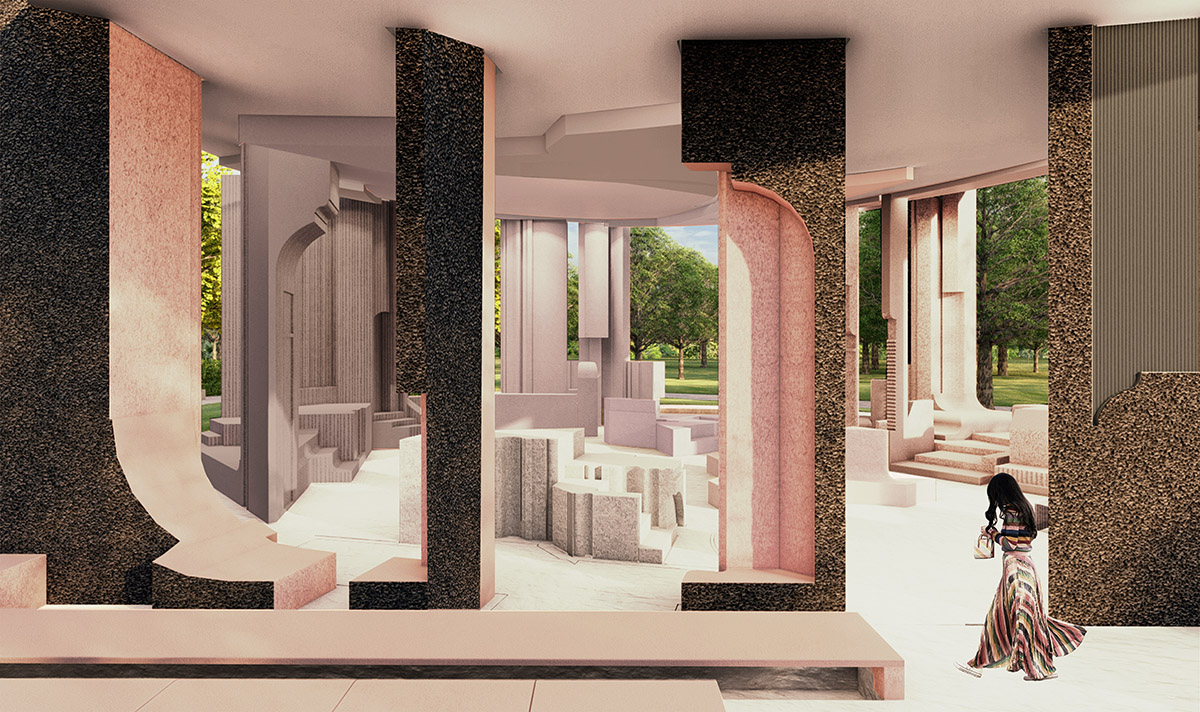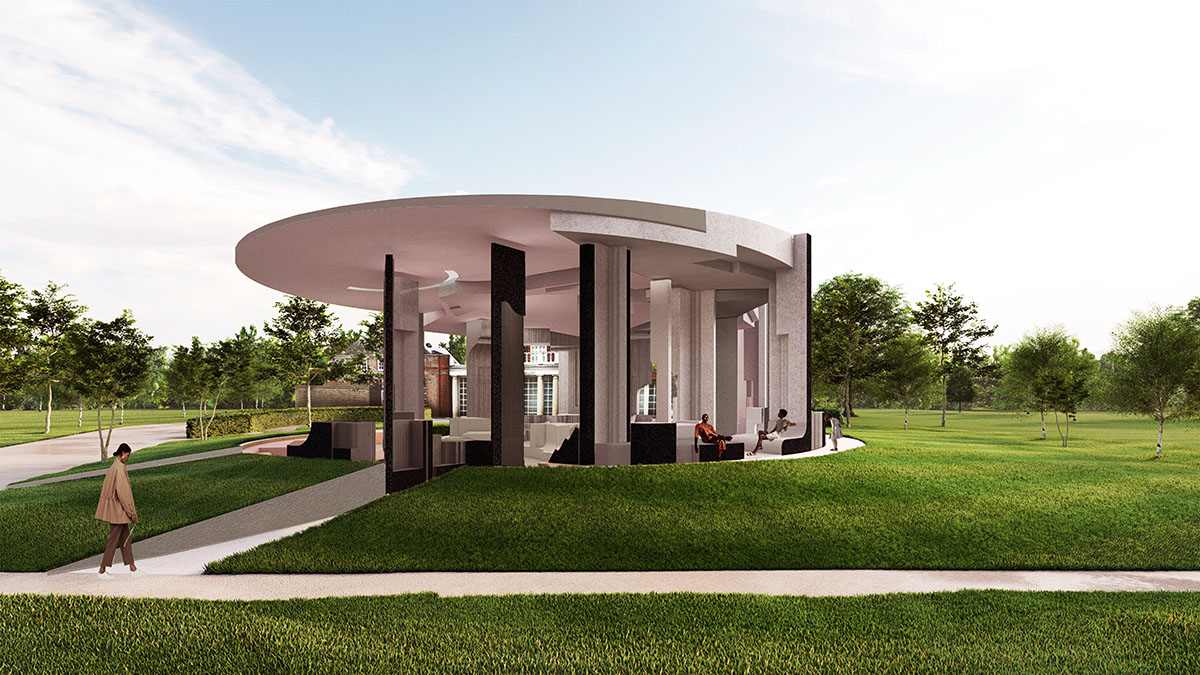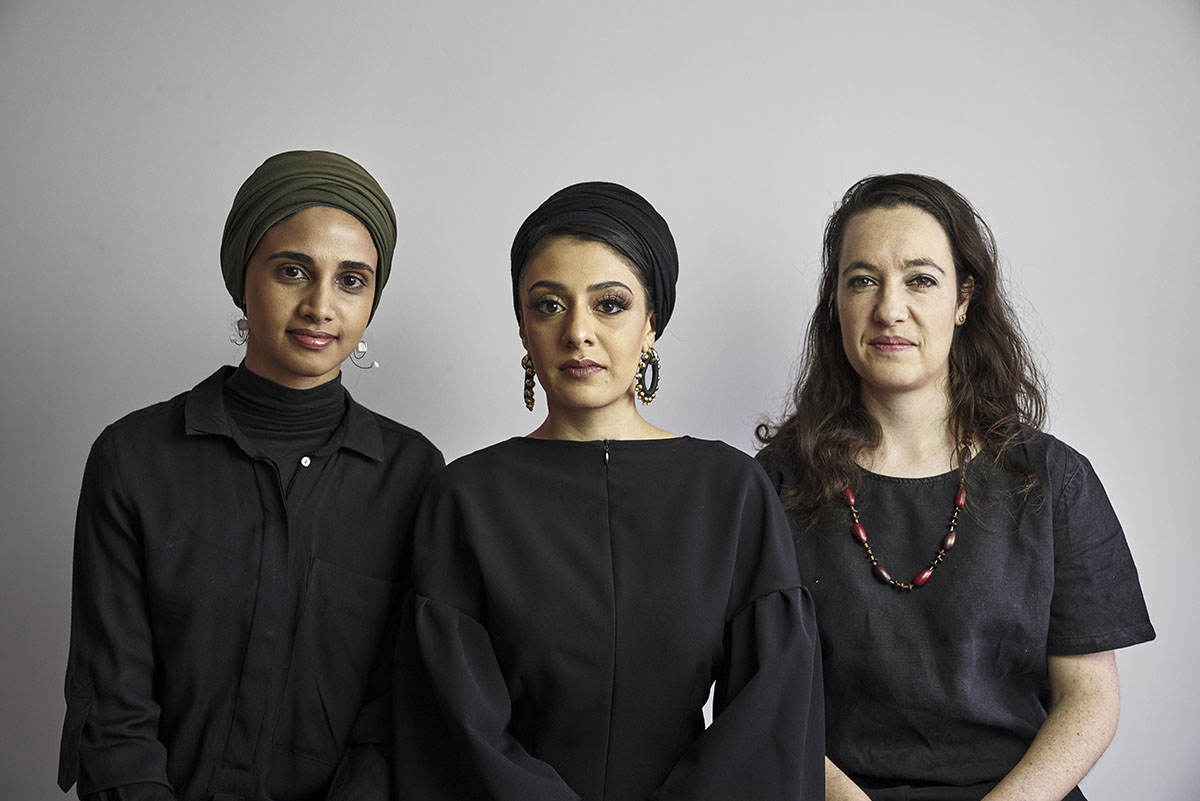Submitted by WA Contents
Counterspace-designed Serpentine Pavilion to open on June 11 in London's Kensington Gardens
United Kingdom Architecture News - May 31, 2021 - 16:04 6299 views

The Serpentine has officially announced the opening date of the Serpentine Pavilion 2021 designed by Johannesburg-based practice Counterspace, directed by Sumayya Vally, who was named as world's most influential architect shaping the future in 2021 TIME100 List.
The 2021 Serpentine Pavilion, which was previously planned to be built in 2020 but it was postponed due to the ongoing coronavirus, will now open to the public on June 11, 2021 in London's Kensington Gardens and will be on view with a public programme until 17 October 2021 in Kensington Gardens.
Johannesburg-based architecture practice Counterspace is directed by the all-woman team of Sumayya Vally, Sarah de Villiersand Amina Kaskar. All three were born in 1990 and they are the youngest ever architects to be commissioned for the Serpentine Pavilion.
Counterspace’s design is based on gathering spaces and community places around the city, folding London in to the Pavilion structure.

Addressing to the notion of "recycle of materials", the pavilion is informed by abstracting, superimposing and splicing architectural elements, varying in scales of intimacy, from various locations, translating the shapes of London into the Pavilion structure in Kensington Gardens.
The Serpentine stated that there will also be a specially commissioned sound programme for the Pavilion, titled "Listening to the City", will feature work by artists including Ain Bailey and Jay Bernard, connecting visitors to the stories and sounds of lost spaces across London.
The 20th Serpentine Pavilion takes references from the architecture of places of worship, markets, restaurants, bookshops and local cultural institutions that are particularly relevant to migrant communities in neighborhoods such as Brixton, Hoxton, Hackney, Tower Hamlets, Edgware Road, Barking and Dagenham, Peckham and Notting Hill, among others.
During the summer, fragments of the Pavilion will be installed in neighbourhoods across the city, to support and facilitate gatherings and impromptu interactions, to honour the history of places which have held communities over time.
"My practice, and this Pavilion, is centred around amplifying and collaborating with multiple and diverse voices from many different histories; with an interest in themes of identity, community, belonging and gathering," said Sumayya Vally.
"The past year has drawn these themes sharply into focus and has allowed me the space to reflect on the incredible generosity of the communities that have been integral to this Pavilion."
"This has given rise to several initiatives that extend the duration, scale and reach of the Pavilion beyond its physical lifespan. In a time of isolation, these initiatives have deepened the Pavilion’s intents toward sustained collaboration, and I am excited to continue this engagement with the Serpentine’s civic and education teams and our partners over the summer and beyond," Vally added.

Amina Kaskar, Sumayya Vally and Sarah de Villiers of Counterspace. Photograph © Justice Mukheli in Johannesburg, 2020 © Counterspace
The Pavilion is constructed from a variety of materials, including custom K-Briq-modules which will be produced by a low carbon brick developer Kenoteq. K-Brig is Kenoteq’s first product for an unfired brick with 90% recycled content from demolition and construction waste.
Another material is "cork" which is provided by Portuguese producer Amorim. Described as one of nature’s most amazing raw materials, cork is 100 per cent biodegradable, recyclable and renewable, cork is incredibly light, impermeable to liquids and gases, elastic, compressible and resilient, according to Amorim.
In addition, K-Briqs is made from 90% recycled construction and demolition waste, are manufactured without firing, with a 10th of the carbon emissions of normal bricks.
Serpentine Artistic Director Hans Ulrich Obrist and CEO Bettina Korek selected this year’s architect with advisors Sir David Adjaye OBE, Professor Lesley Lokko and David Glover alongside the Serpentine team – Julie Burnell (Head of Construction and Buildings) and the project’s curator Natalia Grabowska.
All images © Counterspace
> via Serpentine
